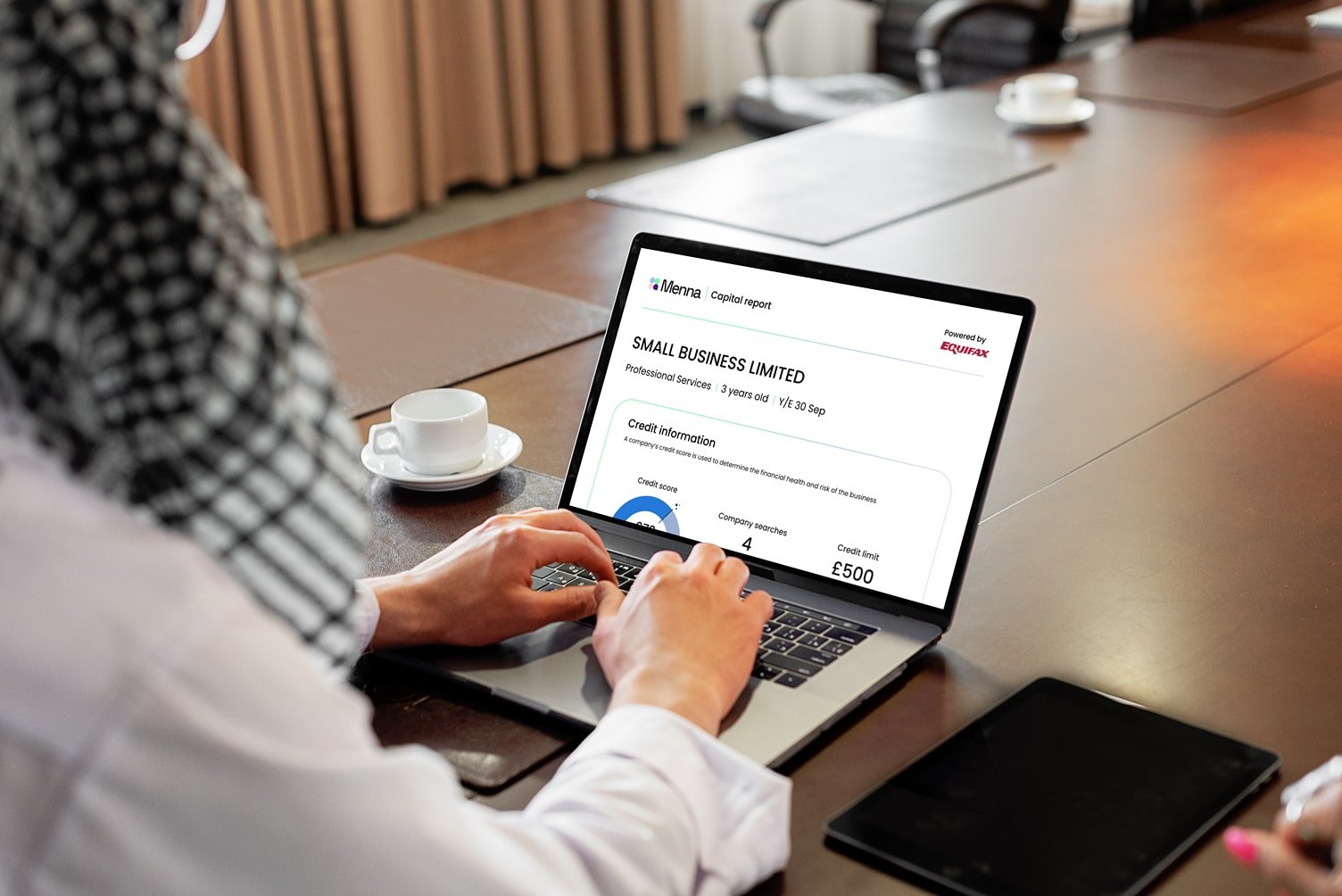Running a small business in the UK means juggling cash flow, building relationships and managing risk every day. One of the smartest ways to protect your business and set it up for long-term success is to run credit checks on both suppliers and customers. Here’s why it matters—and how Menna makes it easy.
1. Protect Your Cash Flow
Late payments or unpaid invoices can quickly disrupt your business operations. Credit checks help you spot warning signs—like a history of late payments or outstanding debt—before you enter into an agreement. This insight allows you to adjust payment terms or reconsider risky relationships, keeping your cash flow healthy and predictable.
 2. Avoid Bad Debt and Fraud
2. Avoid Bad Debt and Fraud
Small businesses are particularly vulnerable to business scams and fraud. A company credit check reveals if a business is legitimate, highlighting dubious ownership or a track record of unpaid debts. This simple step can help you avoid costly mistakes and work only with trustworthy partners.
3. Strengthen Business Relationships
Trust and credibility are essential for any business relationship. Credit checks give you a clear picture of a company’s financial health and payment behaviour, helping you build stronger, more reliable partnerships. Working with financially stable suppliers and customers supports your own growth and reputation.
4. Make Informed Decisions
Credit reports provide valuable data—from payment history and credit utilisation to legal notices and public records—that help you assess risk and make smarter business decisions. Knowing the creditworthiness of your partners means you can tailor your approach, whether that’s offering flexible terms or insisting on upfront payment.
5. Secure Your Supply Chain
If a key supplier goes bust, it can have a domino effect on your business. Regular credit checks help you monitor the stability of your supply chain and spot early signs of trouble. This proactive approach reduces the risk of unexpected disruptions and keeps your business running smoothly.
What to Do If You Find Negative Risk Factors
Credit checks are indicators, not verdicts. If you spot negative factors—like late payments or legal notices—don’t panic. Do your research, ask questions and consider reaching out to the company for clarification. Sometimes, there’s a reasonable explanation. If the issues are serious or persistent, you may need to walk away. Always trust your instincts and protect your business interests.
How Menna Can Help
Menna makes it simple to check the credit score of any UK business—instantly and with confidence. Our platform connects you to leading UK credit bureaus, so you get accurate, up-to-date information. Whether you’re vetting a new supplier, onboarding a customer, or monitoring your existing partners, Menna gives you the tools to manage risk, protect your cash flow and build stronger business relationships.
Ready to take control of your business’s financial health? Start running credit checks with Menna today!
Frequently Asked Questions
Why should small business owners run credit checks on customers and suppliers?
Credit checks help you spot financial red flags like late payments, outstanding debt, or signs of fraud before entering into agreements, protecting your cash flow and reputation.
What kind of risks can a credit check help prevent?
They help you avoid bad debt, scams, unreliable payments, and supply chain disruptions by revealing the financial stability and legitimacy of other businesses.
How do credit checks help build stronger relationships?
By knowing your partners’ credit history, you can offer fair terms and build trust with financially sound businesses—reducing surprises later on.
What should I do if a credit check reveals negative information?
Investigate further, ask the business for clarification, and consider adjusting your payment terms—or walk away if the risks are too high.
How does Menna help with credit checks?
Menna connects you to top UK credit bureaus, giving you instant access to accurate, up-to-date business credit reports so you can make informed decisions quickly.
